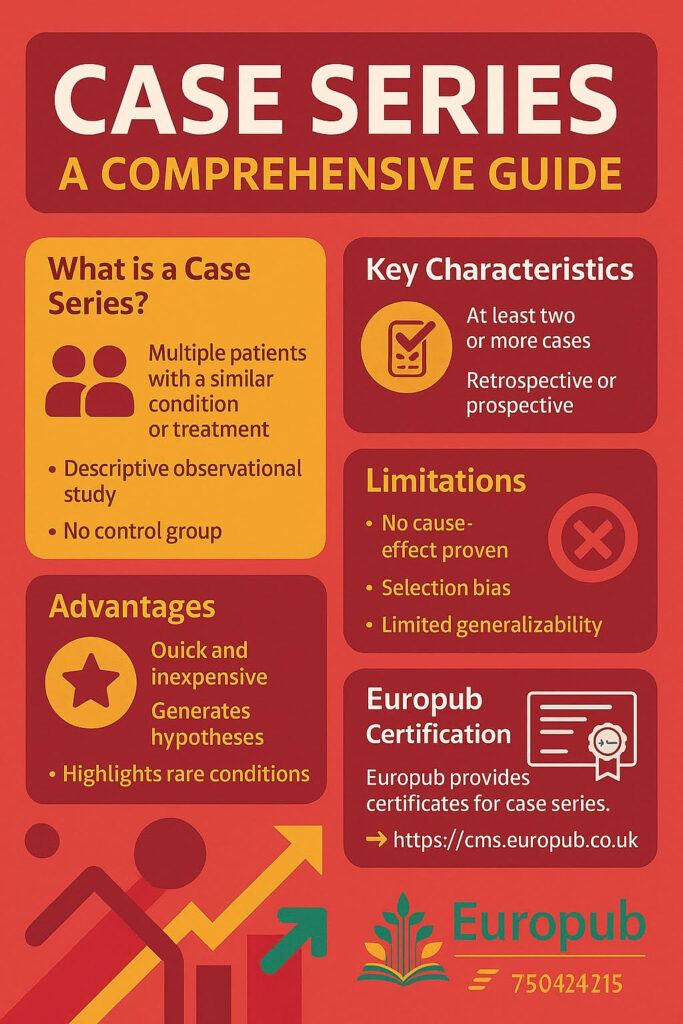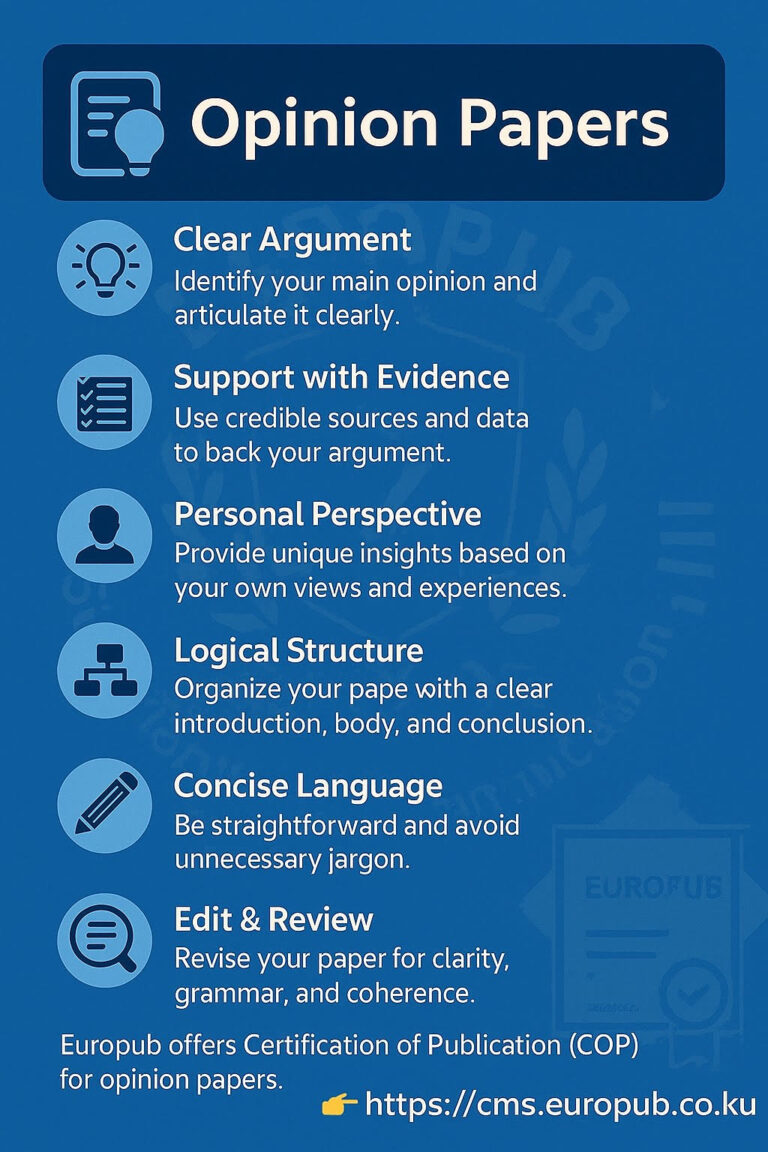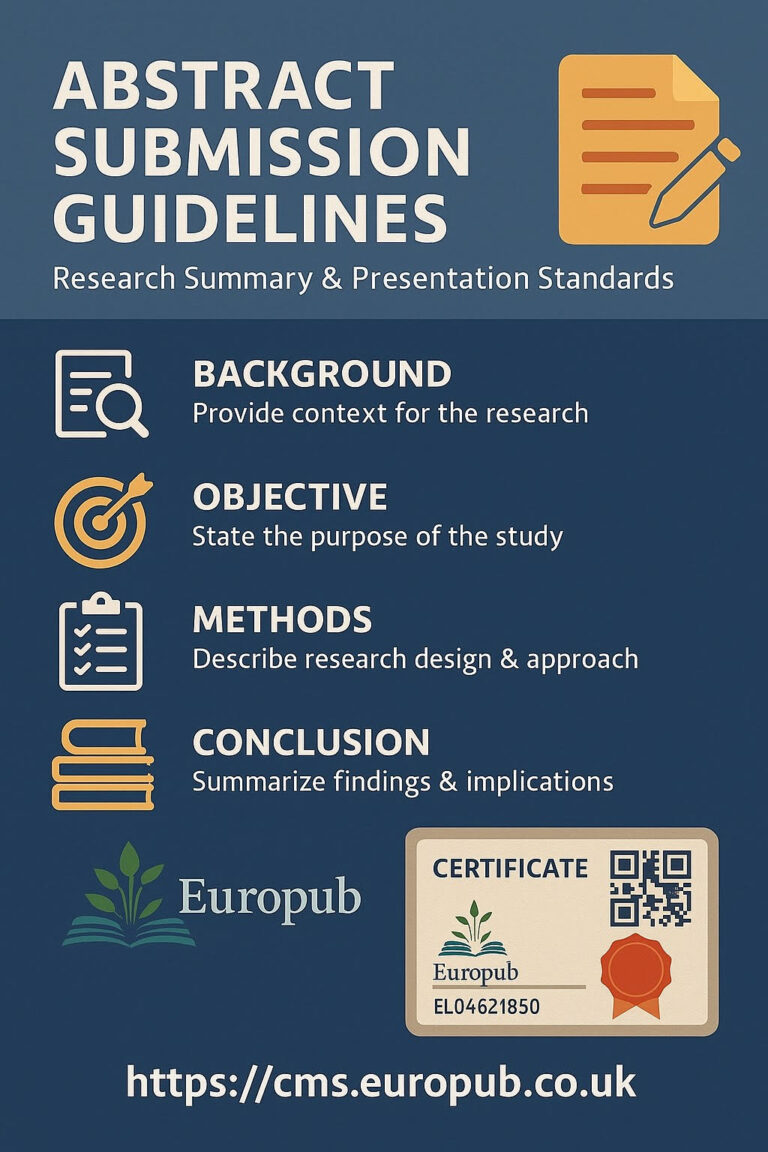
A Case Series is a descriptive study that tracks subjects with a known condition or exposure over a period of time. Unlike case reports (which describe a single patient), case series involve two or more patients and are often used in medical, clinical, and health sciences research.
 What is a Case Series?
What is a Case Series?
- Definition: A case series is a type of observational research where researchers describe multiple cases of patients with similar diagnoses, treatments, or outcomes.
- Purpose: To identify patterns, generate hypotheses, and highlight novel clinical observations.
- Scope: It does not test hypotheses directly but provides valuable groundwork for further research such as cohort studies or clinical trials.
 Key Characteristics
Key Characteristics
- Multiple Cases: Involves at least 2 or more cases.
- Retrospective or Prospective: May use past patient records or track patients forward in time.
- No Control Group: Unlike clinical trials, case series do not include a comparison group.
- Focus on Similarities: Typically, all cases share a similar condition, treatment, or exposure.
 Advantages
Advantages
- Quick and inexpensive to conduct.
- Provides useful clinical insights.
- Generates hypotheses for larger studies.
- Highlights rare conditions or unusual treatment responses.
 Limitations
Limitations
- Lack of control group → cannot establish cause-effect.
- Selection bias may occur if not all cases are included.
- Limited generalizability due to small sample sizes.
 Examples of Case Series
Examples of Case Series
- Reporting a group of patients treated with a new therapy.
- Documenting complications from a specific medical procedure.
- Describing the progression of a rare disease across several patients.
 Frequently Asked Questions (FAQs)
Frequently Asked Questions (FAQs)
Q1: How is a case series different from a case report?
- A case report focuses on a single patient, while a case series involves multiple patients.
Q2: Can a case series prove causation?
 No. It only shows associations and observations, not cause-effect relationships.
No. It only shows associations and observations, not cause-effect relationships.
Q3: Is ethical approval needed for publishing case series?
 Yes, usually. Institutional review boards (IRBs) or ethics committees often require patient consent.
Yes, usually. Institutional review boards (IRBs) or ethics committees often require patient consent.
Q4: Where are case series usually published?
- In medical journals (often in clinical medicine, epidemiology, and healthcare research).
Q5: Can case series influence clinical practice?
 Yes. They often alert practitioners to new side effects, complications, or rare conditions.
Yes. They often alert practitioners to new side effects, complications, or rare conditions.
 Useful Links for Case Series Research
Useful Links for Case Series Research
- NIH – National Library of Medicine (PubMed)
- EQUATOR Network Guidelines – Case Reports & Case Series
- Europub Certificate Management System
 Europub Certification
Europub Certification
Europub provides certificates of contribution, authorship, and recognition for case reports and case series. Researchers and clinicians can request official validation through the Europub Certificate Management System.







